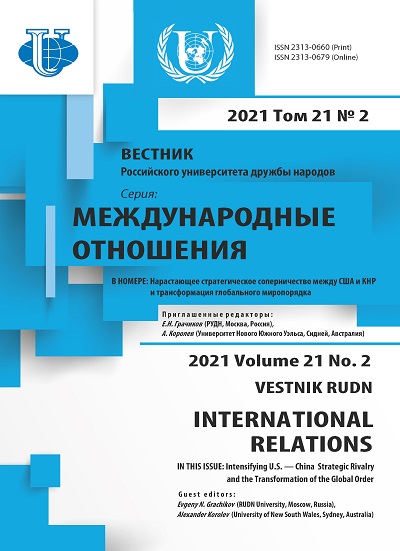详细
Against the backdrop of worsening ecological and climatic threats, which have taken on a truly global scale, states are rethinking their environmental protection approaches to address the growing environmental crisis. The intensive use of natural resources, characteristic of the traditional model of economic growth, no longer corresponds to the “spirit” of the modern environmental agenda. Instead, a new model of eco-culture is being postulated, suggesting a reasonable balance of economic, environmental and social development needs. The relationship between economic development and environmental protection challenges states, including those of the developing world, to switch to clean renewable energy sources, nuclear power plants, and the construction of environmentally friendly housing. As the new “driver” of globalization, China, facing the aggravation of environmental problems, fully understands the timeliness and importance of their solution like no one else. The article analyzes the environmental agenda in China’s modern foreign policy using system analysis and the structural-functional method. The complication of the environmental situation in the PRC forces the country’s leadership to take active measures to combat climate change. Beijing is introducing “eco-culture” into its national development strategy, pursuing a course of building an “ecological civilization” based on respect and protection of nature. The concept of Xi Jinping’s “Community of One Destiny for Mankind” is crucial in the conceptualization of the environmental dimension. An important role is given to the concepts of “ecological civilization” and “two mountains”. With reference to neo-Marxism, the study uses a morphological analysis of the ideology of M. Frieden, according to which the above theories can be classified as nuclear in the general course of socialism with Chinese characteristics. China continues to have a complex and alarming situation with atmospheric pollution. According to the author’s deep conviction, within the framework of the general vector of ensuring the country’s prosperity, the PRC leadership is closely engaged in solving environmental problems, which is understood and supported by the world community. The practical implementation of the environmental agenda is mostly characteristic of Xi Jinping’s foreign policy strategy.








